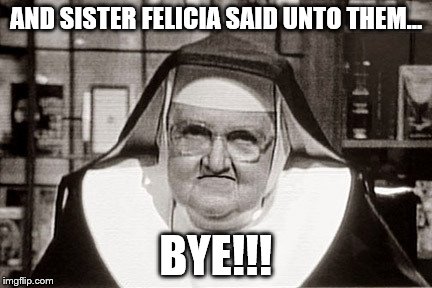Historic Massachusetts churches fight for equal treatment
WASHINGTON, D.C. – The small town of Acton, Massachusetts is pushing back against an anti-religious group’s attempt to exclude all church buildings from historic preservation programs. Massachusetts recognizes the importance of preserving historic landmarks—both religious and secular—and provides state funding for restoring and rehabilitating these buildings. Yet in Caplan v. Town of Acton, currently pending at Massachusetts’ highest court, Americans United for Separation of Church and State says preservation grants can be used for all sorts of historic buildings – just not churches and synagogues. Becket filed a friend-of-the-court brief defending the churches’ right to receive preservation funds on an equal footing with non-religious buildings.
This case comes on the heels of June’s U.S. Supreme Court decision in Trinity Lutheran v. Comer that said that the government can’t block churches from participating on an equal basis in widely available public grant programs. Yet Americans United says that allowing historic religious buildings to participate in the preservation grant program violates part of the Massachusetts Constitution known as the Anti-Aid Amendment. The Anti-Aid Amendment, like the notorious Blaine Amendments adopted in other states, was enacted on the back of widespread anti-Irish, anti-immigrant, and anti-Catholic feeling, and is used today by anti-religion groups to subject religious groups to unequal government treatment. When a Massachusetts trial court in 2016 allowed funds to go to two historic churches in Acton, Americans United appealed, relying on the Anti-Aid Amendment.
“If Americans United has its way, future tourists searching for the Old North Church where Paul Revere looked for ‘One if by land, two if by sea’ might end up finding a hole in the ground instead,” said Joseph Davis, legal counsel at Becket, which filed a friend-of-the-court brief in support of Acton and the churches. “France wouldn’t let the Cathedral of Notre Dame fall into ruin, and Massachusetts shouldn’t let its historic colonial churches decay from neglect either.”
Through its Community Preservation Act, the state of Massachusetts makes preseveration funds available to both secular and religious structures for projects like replacing sagging roofs, reinforcing crumbling walls, and replacing faulty wiring, recognizing that these buildings are an important part of Massachusetts’ long history that should be preserved for future generations. Since 2000, more than 8,000 projects have been carried out on secular and religious buildings, including the birthplace of Abigail Adams, the Vilna Shul synagogue, and colonial-era Quaker meetinghouses.
“Historic churches don’t have to stop being churches in order to be preserved,” said Davis. “Religious buildings are just as much part of the deep fabric of Massachusetts history as any other historic building—every citizen of Massachusetts benefits from these pieces of history. Historic houses of worship deserve to be treated equally when it comes to state historic preservation funds.”
The Massachusetts Supreme Judicial Court will hear the case on September 7.
For more information or to arrange an interview with a Becket attorney, please contact Melinda Skea at media@becketlaw.org or 202-349-7224. Interviews can be arranged in English, Chinese, French, German, Portuguese, Russian and Spanish.
Additional Information:
- Becket’s Amicus Brief (August 21, 2017)
- Case Page for Caplan v. Town of Acton (press releases, legal docs, news, images)
 WASHINGTON, D.C. – The Mayor and City of Pensacola, Florida, today will ask a federal court to protect a cross memorial that has stood in a city park for over 75 years. Last week in Kondrat’yev v. City of Pensacola the court
WASHINGTON, D.C. – The Mayor and City of Pensacola, Florida, today will ask a federal court to protect a cross memorial that has stood in a city park for over 75 years. Last week in Kondrat’yev v. City of Pensacola the court  WASHINGTON, D.C. – On Thursday Becket will host an exclusive photo exhibit,
WASHINGTON, D.C. – On Thursday Becket will host an exclusive photo exhibit,  N, D.C. – As Cuban officials prepare to bury Fidel Castro’s ashes, his secret police continue to detain dissidents. Danilo Maldonado, a performance artist,
N, D.C. – As Cuban officials prepare to bury Fidel Castro’s ashes, his secret police continue to detain dissidents. Danilo Maldonado, a performance artist,  President William Armstrong was a vigorous defender of religious liberty. As a United States Senator he sponsored crucial legislation protecting the rights of religious organizations. As the President of Colorado Christian University he was among the first to challenge government efforts to force employers to provide healthcare plans that violated their religious convictions. As a devout Christian, he was always bold in sharing his own beliefs, yet unequivocal in defending the beliefs of others.
President William Armstrong was a vigorous defender of religious liberty. As a United States Senator he sponsored crucial legislation protecting the rights of religious organizations. As the President of Colorado Christian University he was among the first to challenge government efforts to force employers to provide healthcare plans that violated their religious convictions. As a devout Christian, he was always bold in sharing his own beliefs, yet unequivocal in defending the beliefs of others.
 Who deserves a lump of coal this holiday season? Each year Becket names the most absurd affronts to Christmas and Hanukkah, listing the most outrageous offenders of holiday cheer until we reach the top bah-humbugging, grinchiest transgressor. Not only do they deserve a lump of coal, they are crowned with the great (dis)honorable Ebenezer Award.
Who deserves a lump of coal this holiday season? Each year Becket names the most absurd affronts to Christmas and Hanukkah, listing the most outrageous offenders of holiday cheer until we reach the top bah-humbugging, grinchiest transgressor. Not only do they deserve a lump of coal, they are crowned with the great (dis)honorable Ebenezer Award.






 by
by  by
by  by
by  Like all those who knew Whitney Ball, I was so sad to hear of her passing on August 17th; it was too soon and she was too young. Despite contracting cancer at a young age, Whitney lived her life looking forward.
Like all those who knew Whitney Ball, I was so sad to hear of her passing on August 17th; it was too soon and she was too young. Despite contracting cancer at a young age, Whitney lived her life looking forward.